Read the letter here >
|
Te Rau Herenga o Aotearoa LIANZA members raised concerns about a possible withdrawal of the LIS611 paper from the Open Polytechnic Te Pūkenga syllabus. LIANZA wrote to Karen Kane to verify the current situation of this paper. LIANZA’s letter emphasises the key role the paper plays in the training of future cataloguers and staff in Aotearoa New Zealand’s library and information services. Thank you to the LIANZA CAT SIG for their feedback on this issue.
Read the letter here >
0 Comments
Sana Saleem attended the Australian Libraries Research Tour in August 2023 as the LIANZA delegate. In this article, she talks about the tour and what she learned. I want to begin by acknowledging the traditional owners and custodians of the lands on which the research took place in the various interstate libraries we visited. I pay my respects to elders past, present and emerging. I extend that respect to Aboriginal and Torres Strait Islander peoples. The 12 days of warm Australian sunshine, eating delicious barramundi, and heartfelt appreciation for the beautiful heritage buildings, diversity and community engagements were some of the highlights of visiting Australia in my birthday month, August. I was blessed to be the LIANZA representative on the tour, travelling with Marion Read, Denise Clarkson, Māia Abraham and Siren Deluxe. PREPARING FOR THE TRIP We began preparing for the trip over Zoom in May. Our e-talanoa involved getting to know each other, selecting and deciding on the list of potential libraries to visit, and finalising the accommodation and flight details. We all had tasks, and the team prepared an infographic of the common themes and questions, which we sent to the Australian library managers in advance, on programmes, community and partnerships, governance and strategies, operations, staffing and resources, spaces and design and key issues and trends. It has been a trip of sharing, giving and receiving information. I demonstrated my Fijian values of veiwekani – relationships, vei talanoa – conversing respectfully with people, and vei rogorogoci – listening with respect and intently to others, making connections on how a library is a place and space that brings people and information together under the whare/vale/fale of learning. The library visits covered the states of New South Wales and South Australia. SYDNEY LIBRARY VISITS We visited 10 libraries in the first three days of the trip. These were: City of Parramatta – The Phive, Wentworth Point Community Centre and Library, Our Library@ Mount Druitt, Granville Centre, Cumberland Libraries, Wentworthville Library, Marrickville Library, Haberfield Library and Community Hall Heritage Project, Lane Cove St Leonards Library, and the State Library of NSW. The team then flew to Port Macquarie to continue our journey and to spend a whole day in Kempsey, visiting the Kempsey Library and Port Macquarie Library. From there, the team was split between Adelaide and Melbourne for a few days before finishing the tour. The team then flew to Port Macquarie to continue our journey and to spend a whole day in Kempsey, visiting the Kempsey Library and Port Macquarie Library. From there, the team was split between Adelaide and Melbourne for a few days before finishing the tour. ADELAIDE LIBRARY VISITS I visited the Onkaparinga Libraries, which included Woodcroft, Seacroft and Noarlunga Libraries, Cove Civic Centre, Cultural Centre Library, Salisbury Community Hub, Burton Community Hub, Para Hills Community Hub, and the State Library of South Australia. WHAT I LEARNED AS A LIBRARIAN AND AS A RESEARCHER Libraries The roles of libraries and librarians have evolved as we move beyond the traditional library and its functions. I saw excellent examples of co-existing and co-locating Australian public libraries and community/cultural hubs operating together and fit for purpose. The community hubs are designed to transform the notion of thinking beyond libraries full of books. It demonstrated the extraordinary value of public libraries situated in the heart of communities and local councils, representative of the identities of the place. The PHIVE in Parramatta is not just a library. The $138 million architecturally designed award-winning landmark combines smart technology and eco-friendly interiors to create a balanced library functioning as a service delivery model, enabling equity of access and promoting information literacy. Another example of a school hub library in Onkaparinga showcased the joint use of resources in a metro area to attract young people to engage with a floating collection. I believe some Australian public libraries are emerging in bicultural consultations and indigenous partnerships to provide culturally safe access to Aboriginal and Torres Strait Islander library services and collections. Library displays on the Australian Indigenous Voice Referendum and more. Image credit Sana Saleem I found it encouraging to see library displays on the Australian Indigenous Voice referendum held on October 14, 2023. COMMUNITIES The COVID-19 pandemic has had a substantial impact on public libraries in Australia. Almost all libraries experienced some period of lockdown, resulting in libraries adapting their services to suit the diverse needs of their communities. Australia’s public library system serve a diverse range of urban, regional and remote communities, including young and aged populations and immigrants. Many libraries have recognised the importance of partnering with local communities and councils to strengthen the voice and advocacy for a successful library. Hearing how those public libraries responded and established new practices of connecting with a ‘new normal’ from a user perspective was promising. For example, libraries transitioned into online services provided safe spaces for the homeless and interactive hubs for the children’s programme, and increased the community languages available in the physical collection. It was wonderful to see diverse communities connecting with both libraries as a collection and an inclusive and safe space to study, learn and feel the warmth of the ‘village’ coming together. Kempsey Shire Council and library staff showed us their garden decorated with hands. The hands had messages to acknowledge the land's traditional custodians, the Thunggutti/Dunghutti nation, and celebrate National Reconciliation Week. VEI TALANOA I had many interactions, conversations and networking opportunities with my Australian library colleagues through the respectful way of vei talanoa. We had meaningful spoken engagements to understand better how librarians from ALIA and LIANZA professional organisations support the library and information sector in the libraries, places and communities we serve in Aotearoa and Australia. The face-to-face interactions provided more context and an open process to share knowledge, while maintaining the kaupapa of our team project. There were some excellent examples of library design, green hubs, community hubs and modern spaces. LIANZA FELLOWSHIPS 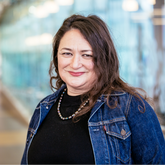 Kim Taunga Kim Taunga, Te Rau Herenga o Aotearoa, LIANZA immediate past president and currently Head of Community Delivery South (Auckland Council) has made a long-lasting contribution to the way that public libraries meet and respect diverse customer needs. Kim is an inspiration to others. Her commitment to service, to manaakitanga, and her generosity in mentoring and assisting others to learn, develop and get involved are her key drivers. Kim’s involvement with LIANZA dates from 1995, five years after commencing as a library assistant at Manukau Libraries. Since this time, she has continuously been committed to and involved with LIANZA as regional chair, regional councillor and several conference committees. Kim has always actively supported the bicultural journey of Aotearoa and the profession. Kim has been highly involved in bicultural and Pasifika kaupapa. She is an enthusiastic member of the LIANZA Pasifika Information Management Network and staunch supporter of Te Rōpū Whakahau partnership. She has demonstrated a strong and enthusiastic commitment to growing the capacity of our profession to provide resourcing and high-quality services to Pacific peoples in New Zealand and in the Pacific. In 2023 Kim was elected to the IFLA Asia-Oceania Regional Division Committee. Kim has the determination to bring about change and make things better for others. She is hard-working and is not afraid to push boundaries. One of many examples is her clear innovative vision and achievements in major new library build projects such as the libraries at Botany (first public library with RFID), Papakura, Ōtāhuhu (Tōia library pool and rec centre) and most recently Te Paataka Koorero o Takaanini Library and Community Hub. These libraries have attracted and influenced library visitors from Aotearoa and internationally. Kim spoke about Takaanini at the IFLA LBES (Library Buildings and Equipment section) mid-year seminar in Sydney earlier this year. Kim is a role model for librarianship in Aotearoa. She has coached a new generation of library leaders who will further enrich our profession, services, and communities. She has changed the landscape of future public library leaders through her desire and ability to mentor others. She is a librarian who shares her own experiences and wisdom generously. Kim is a public librarian dedicated to excellence for her communities and profession. Kim is highly deserving of the award of Fellowship. Peter Murgatroyd Peter Murgatroyd RLIANZA has made an outstanding contribution to health libraries in New Zealand and demonstrated exceptional leadership in this sector, worthy of recognition by the award of a Te Rau Herenga o Aotearoa LIANZA Fellowship. Peter is currently the Library and Knowledge Services Manager at Te Whatu Ora Health New Zealand, Counties Manukau, supporting the information needs of clinical and patient care staff as well as improvement in healthcare service delivery, design and innovation. He is also responsible for Ko Awatea LEARN, a DHB-focused eLearning community education service providing a range of programmes, courses, and community forums. Peter has been an active member of the LIANZA Health SIG as well as convenor from 2019-22. During this period, Peter initiated and fostered a relationship between the LIANZA Health SIG and ALIA’s Health Libraries Australia. Peter has encouraged knowledge sharing between these groups and the sharing of professional development opportunities from Australian and New Zealand health librarians. Peter is also a member of the editorial team for the Journal of Health Information and Libraries Australasia (JoHILA). In 2023 Peter was appointed to the IFLA Evidence for Global and Disaster Health Special Interest Group. Additionally, Peter has worked tirelessly to improve communication and collaboration across organisational boundaries and to remove the inequities and barriers to accessing resources. Peter helped to provide the enthusiasm and thought leadership that resulted in a vision for the future of health librarianship in New Zealand and was a key architect of the report that was distributed to stakeholders. Peter was actively involved in the local, regional and national response to COVID 19 contributing to information curation and dissemination within both the health and library sectors in addition to being a Reference Group Member of the New Zealand Libraries Partnership Programme (NZLPP) 2021-2022. Peter was also a member of the LIANZA 2019 Conference programme committee and a member of the organising committee for the 2023 Asia-Pacific Health, Law, and Special Libraries Conference. Peter has also presented at a number of LIANZA and other professional association conferences in New Zealand and internationally. He has also published widely throughout his career. Peter has also had a longstanding involvement with library development in the Pacific Islands and has served as Vanuatu Library Association President, Samoa Library Association Vice President and he was also the Pacific Regional Chair of IAMSLIC, The International Association of Aquatic and Marine Science Libraries and Information Centres. Peter has generously shared his time, knowledge, and experience to support the leadership development of health library colleagues with strategic thinking and clear communication being hallmarks of Peter’s contribution to the sector. Philip Miles While Philip’s work has been largely based in the public library sector in the Greater Auckland Region, his career has been nationwide, across several library sectors, in professional networking groups and with professional association committees and roles at all levels. Since graduating with a Bachelor of Arts in Library and Information Services, Philip’s work in Auckland Libraries has included managing a community library, leading digital solutions across the libraries’ network, and working with the Connected Communities programme. In these generalist and specialist roles, Philip has consistently created success with both processes and people, helping large projects in both planning and implementation phases and ensuring staff-friendly and customer-friendly delivery was always at the forefront. Philip has modelled leadership and strategic thinking through his contributions in all these areas, making him a valuable member of the Auckland Libraries staff. Within the wider professional sphere, Philip has made a strong and continued contribution to LIANZA at both the regional and national levels. He has served on the LIANZA Hikuwai committee including as chair and was regional councillor on LIANZA Council for two terms from 2019-2023. Philip was involved in two major reviews for LIANZA. He was on the working group for the review of special interest groups and regions in 2019 and contributed significantly as a member of the strategic leadership governance working group in 2020-21. Philip chairs meetings, webinars, and conference sessions in person and online with a respectful, professional approach, and with great humility. In both roles, his contribution has always been a mixture of diligence and practicality, with strong strategic and future-thinking contributions. Philip understands the broader picture of a national organisation and what it seeks to achieve, making him a valuable contributor at all levels. In all of this, Philip is a quiet and determined professional. He does not need to be in the limelight or to get lots of credit for his mahi, and he takes satisfaction in a job well done and in supporting and encouraging others. His strength is in relationship building and strategic thinking, a combination which makes him a highly effective member of Council, regional committees, and workplace contexts. It is the breadth and depth of his involvement and contributions in the library profession that makes Philip a worthy recipient of the award of a Te Rau Herenga o Aotearoa LIANZA Fellowship. LIANZA ASSOCIATESHIPS Lisa Salter Lisa Salter RLIANZA is awarded a Te Rau Herenga o Aotearoa LIANZA Associateship. Lisa’s library career has focused on school and community libraries. At the Ruawai College library, the library was developed into a community library hub and Lisa continued with this work while she was employed there. As Kaipara District Library Manager, Lisa’s vision for her small community is as broad and equitable as that of larger regions, with a focus on continuous improvement, using her strengths of effective communication, a professional approach and spotting chances to develop library services. In her current role, she manages the Dargaville Public Library, four community libraries, a team of staff, and more than one hundred volunteers. In 2022, thanks to Lisa’s work, Kaipara District Libraries went fines-free. Lisa has partnered with National Library’s Pūtoi Rito project to grow reading for pleasure for young people in Dargaville – a lasting and meaningful project. Her proudest achievement is her high-functioning team of staff and dozens of volunteers. Lisa has ensured Kōtui is available across a volunteer network. Lisa launched Tutu Discovery Library and developed a strategic direction for the library service. She works collaboratively with neighbouring local authorities. Lisa has been an active member of LIANZA, PLNZ, and SLANZA. She continues to hold a variety of positions, including as a member of the Kōtui Board manager’s executive and Public Libraries of New Zealand National Executive. Simon Hart Simon Hart RLIANZA is awarded a Te Rau Herenga o Aotearoa LIANZA Associateship. Simon has worked in management and leadership roles at the University of Otago for over 30 years, collaborating with library colleagues nationally and internationally. As Learning Services Librarian, Simon coordinated and promoted the library teaching and learning programme, collaborating with The Higher Education Development Centre and academic divisions to promote information skills development. As a policy, planning, and evaluation librarian, he has initiated and coordinated innovative projects and activities designed to extend assessment activities locally, nationally, and internationally. Simon is the co-chair of the CAUL (Council of Australian Librarians) Value and Impact Community of Practice, facilitating a strong community of practitioners across Aotearoa New Zealand and Australia. Through his research, Simon has contributed widely to the literature on measuring and assessing library services. Simon cares deeply about how the library supports the library user and how the organisation can support their staff. He continues to provide leadership to foster evidence-based decision making and a culture of continuous improvement in libraries. LIANZA LETTERS OF RECOGNITION Adrian Jenkins Adrian Jenkins RLIANZA is awarded a Te Rau Herenga o Aotearoa LIANZA Letter of Recognition for his contribution to the LIANZA Professional Registration Board. Adrian was a member of the board from 2020 to 2023 and acted as chair from July 2022 to March 2023. During his time on the board, he worked with the LIANZA Executive Director to update the Professional Registration Board content in the LIANZA Code of Practice. Adrian also led to completion a project to update the Professional Registration Revalidation template to increase the ease of use for members, so the board received the right information to assess. He also established clear guidelines on extra requirements for applicants who requested an extension of submission date for their Professional Registration revalidation journal. Adrian’s support and leadership of the board have been deeply valued by the sector. Dawn Carlisle Dawn Carlisle is awarded a LIANZA Letter of Recognition for her contribution to ākonga and kaimahi at Wintec, Te Pūkenga, for her support of learning around Te Tiriti, mātauranga Māori, Pasifika, and equity and inclusion. Over the last year, Dawn has developed an expansive set of resources for ākonga, enabling them to deepen their understanding of Māori and Pasifika worldviews. She actively sought advice and feedback from Māori and Pasifika groups at Wintec, bringing together Pacific conversations in accessible and comprehensive guides. In developing this work, which has been deeply valued by ākonga and kaimahi, Dawn has shown dedication, humility, and willingness to learn. Mark Hughes
Mark Hughes is awarded a Te Rau Herenga o Aotearoa LIANZA Letter of Recognition for his continued and sustained advocacy and commitment to library and information services in the Murihiku - Otago Southland region. He is described as an integral part of this region and over the past decade or so has taken on several LIANZA committee roles including chair, treasurer, and member in order to provide continuous networking and professional development opportunities. Mark is described as “the rock that held it all together”, especially over the COVID period and has been on the organising committee for the LIANZA 1910-2010 Centennial Conference. Mark brings a positive, professional, and proactive presence. His continued contribution has meant that LIANZA has survived and thrived in this region. Kia hari, kia koa Kia mahitahi Ngā tamariki Ngā mātua Ngā kaitiaki Kia hari, kia koa! (Karakia tīmatanga for children’s storytimes, composed for Wellington City Libraries by Suezanne Pohe in 2016) In this article, Stephen Clothier of Te Matapihi ki te Ao Nui Wellington City Libraries (WCL) shares his perspective on a recent step taken at WCL to develop their bilingual services for tamariki. Tēnā koutou kātoa e hoamahi mā. I am not Māori, nor do I consider myself fluent in te reo Māori. I am fortunate to have worked with and been supported by many kaimahi Māori and speakers of te reo over the years I have worked at WCL, and my description of our libraries’ recent journey is only made possible through their expertise and generosity. There are too many people to name and thank for their incredible mahi over the years, but I would like to pay special homage to Suezanne Pohe, Louise Dowdell, Pippa Cubey, Ann Reweti, Te Atawhai Scott, Charlotte Findlay, Leila Waiora Bailey-Moore, Deon Knox, and Belinda Davis – ehara taku toa, he takitahi, he toa takitini. Auē! THE EVOLUTION OF KŌHUNGA KŌRERO In late 2022, the Children and Youth Services (CYS) team at WCL was faced with something of a dilemma as we considered how best to provide bilingual programmes in English and te reo Māori to the pēpi and tamariki of Te Whanganui-a-Tara and their whānau. Since 2009, we had run a popular te reo Māori storytelling programme across our branches called Kōhunga Kōrero, derived from ‘kōhungahunga’ – ‘to be young, of people and birds’. Kōhunga Kōrero, or KK as we affectionately called it, was envisioned as a full-immersion programme, where fluent library kaimahi would share stories, waiata and pūrākau, and converse with families fully in te reo Māori. Introducing Kōhunga Kōrero was an important step for WCL as we sought to bring te reo Māori storytelling to our youngest library users. The example provided by the amazing wāhine leading the programme led to more and more of our presenters who were running the nominally English-medium Preschool Storytime incorporating stories and waiata in te reo Māori in those sessions as well. However, through circumstance and staffing changes, we started running short of kaimahi who had the level of fluency required for them to feel confident and comfortable leading such a session. I started helping to deliver Kōhunga Kōrero in 2018. By this time most of our KK presenters moved out of necessity to a more bilingual delivery model. Some of us felt quietly whakamā that we were not living up to the Kōhunga Kōrero vision, even though the whānau attending our sessions were enjoying themselves. This worry that we were not fully honouring the whakapapa of Kōhunga Kōrero and the legacy of the amazing wāhine who had led it for so long, and the fact that the responsibility for presenting this programme was falling on the shoulders of a smaller and smaller number of staff as the years went on, was creating a situation that we knew we had to address. NOHINOHI REORUA: TOWARDS A NEW BILINGUAL STORYTELLING PROGRAMME
After an initial brainstorming session, we came to what felt like the most obvious solution for everyone. Most of our storytellers had been incorporating te reo Māori into their English storytimes already, and many of our Kōhunga Kōrero presenters found it expedient to use English during their sessions as well. Why not simply combine the two approaches? Nohinohi Reorua, from ‘nohinohi’ – ‘to be small, little, new’, was imagined as a bilingual storytelling programme where presenters use both English and te reo Māori to deliver a session shaped by mātauranga Māori and in accordance with a tikanga that we built together. We worked out an appropriate order of karakia, mihimihi, story-sharing and pūrākau, waiata and kēmu to create sessions that reflect the order of proceedings of a pōwhiri but still feel intuitive and enjoyable to tamariki who want to listen, move their bodies and participate. We developed a handbook that kaimahi can use to help them plan a session. And, thanks largely to work by former kaimahi Suezanne Pohe and Leila Waiora Bailey-Moore, a new training programme and staff guide to te kohikohinga Māori to help them select pukapuka at the right level for their reo, with kupu and rerenga kōrero that they can pronounce confidently. Preparing for a Nohinohi Reorua session is familiar for staff who have presented Preschool Storytime in the past – looking for books, deciding what waiata to use, maybe preparing an activity or a game. The key difference is that we do it intentionally with tikanga and mātauranga Māori at the heart of each decision we make. The goal is to deliver a session centred around te ao Māori and to foster a warm and inclusive atmosphere where all feel comfortable exploring kōrero i te reo Māori to the degree they can. Following a period of practice and preparation, we introduced Nohinohi Reorua at six of our libraries in May 2023. The response from the public has been wonderful and immediate – our sessions are bursting with tamariki from preschools and kindergartens, and whānau who are keen to participate and learn more about te reo and te ao Māori. Attendance at Nohinohi Reorua is about 50% higher than usual for our English storytimes. But the greatest success, I think, is in how wholeheartedly my amazing colleagues have embraced the new approach. Where previously there was a dwindling group of just four or five staff who felt confident delivering Kōhunga Kōrero, we now have 20 staff across our network working together to run Nohinohi Reorua. Since May we’ve added one more library and a community centre to the list of locations that are offering the programme. And a fresh group of 10 more kaimahi is on the waiting list to attend training. I am feeling more positive than ever about the future of te reo Māori in our children’s programmes. I can’t wait to see where our kaimahi take the programme next – and how we can start integrating what we have learned across all our programme offerings. Stephen Clothier is the Children’s and Youth Services Coordinator at Te Matapihi ki te Ao Nui Wellington City Libraries. His library-related interests include reading to children in funny voices, teaching robots to read to children in funny voices, and breaking things (usually dramatically) with the express purpose of putting them back together again – hopefully better than he found them. In 2022, the University of Waikato's Library Plan took effect under the leadership of a new university librarian, Michelle Blake. The plan is underpinned by principles taken from the university’s Te Tiriti o Waitangi Statement and supports the university’s ambition to become an anti-racist institution. The intention to indigenise the library services is at the heart of the plan. It was clear that indigenous expertise was required to lead this work. After reorganising the library in 2022, six new dedicated Māori and Pacific positions and two Māori and Pacific student assistant roles were created. It was necessary to attract the right people to these roles, so they were advertised with as much flexibility as possible, and cluster recruitment ensured the staff filling these positions were not coming in alone. The Pou Ārahi (Cultural Advisor) role is held by Dr Rangihurihia McDonald (Ngāti Maniapoto), who is responsible for relationships with Māori communities and supporting the achievement of Māori student and staff equity. She also leads the library’s anti-racism work. Hollie Tawhiao (Ngāti Tiipa) is the Kaitiaki Mātangireia and oversees the Mātangireia collection of Māori, Pacific and indigenous resources. Hollie ensures appropriate manaaki of the collection in collaboration with our communities. Ngāwaiata Henderson (Ngāpuhi, Maniapoto, Tūhoe, Ngāti Hāua) has taken up the post of Te Mata Aurei as part of the Teaching and Learning team. The team is responsible for teaching library skills to students and researchers, and Ngāwaiata’s role focuses on tauira Māori. Ammon Apiata (Ngāpuhi, Ngāti Toarangatira, Ngāti Koata) has taken on the role of the Māori and Indigenous Research Support Advisor in the recently formed Open Research team. The team is tasked with advancing the university’s open research culture and supporting researchers to make their work open and accessible. In addition, Ammon’s role includes implementing and advising on Māori data sovereignty concerning the storage and management of research data. Kalehi Apete (Fakaofo, Tokelau) is our Kauvaiora. She guides Pacific-identifying researchers about indigenous data sovereignty, research data management, publishing pathways to reach indigenous audiences and open-access equity funding. The Kauvaiora role is the first-ever library role that is solely committed to fulfilling the goals of the university's Pacific Strategic Plan. This has involved building the foundation for engaging with our Pacific communities and reforming the Pacific collection. Keshia Cleverly Karaitiana (Waikato-Tainui, Te Rarawa, Ngāti Kahungunu ki Wairarapa, Kāi Tahu) is the Kaitūhono (Māori Engagement Advisor). This role engages our Māori communities, promotes library services and runs events. Ngaki Te Kare-Ruaine (Ngāti Wairere and Ngāti Maniapoto) is our Māori student assistant, a new position created to support rangatahi Māori into library pathways. Ngaki works closely with the Mātangireia team. A further role was created for a Pacific student assistant, and Neha Nisha has taken up this post. Neha works closely with the Mātangireia team and our Kauvaiora to expand the Mātangireia Pacific collection. The addition of these positions has resulted in Māori and Pacific staff numbers increasing from approximately 7% to 21% overall. The manager group is now 33% Māori, and the library is beginning to reflect our user communities more accurately. Attention has turned to ensuring the lived experiences of our kaimahi are positive. In January 2023, the Kaimahi Forum was established to provide an exclusive space for Māori and Pacific staff to come together, collaborate and share ideas, and advise library management on Māori and Pacific matters. Our kaimahi work collaboratively to deliver initiatives that contribute to our library plan. Te reo Māori-speaking staff have begun facilitating regular te reo practice sessions within team meetings, creating reference and research resources in te reo, and holding waiata practices for all library staff. We have started our anti-racism work involving team conversations about casual racism/racial micro-aggressions in the workplace. We have also developed a reporting form for library staff to report this. Library management takes these reports seriously and works together with those affected to resolve the issues that arise. All library staff are supported to take responsibility for their learning in the anti-racism space, so an anti-racism resource list has been curated. Everyone must have at least one anti-racism goal on their annual development plan. All library staff must attend a training session on Te Tiriti o Waitangi and te ao Māori, including a local iwi context component. Our kaimahi further support this learning with training and support that is relevant to us in the library. For example, kaimahi have recently delivered a presentation on indigenous research as part of a series aimed at supporting staff who work with indigenous researchers and the materials of interest to these communities. Our Mātangireia team has been working to rebalance decades of colonial acquisition and management practices. The collection has been undergoing a complete inventory and assessment to correct this. The team has also rewritten policies and plans to prioritise indigenous content and perspectives. Further, a full review of our data collection management and digital dissemination platforms has encouraged collegial partnerships with like-minded institutions such as Tauranga Libraries and Local Contexts. The collection policies regarding materials by Pacific people and about the Pacific have been revised for the first time since 2003. This has involved enriching and updating the metadata of these materials.
Māori, Pacific and other indigenous researchers are being supported in the open research space to make informed decisions about where they place their work and understand its reach and impact. The library recently established an Open Access Equity Fund, which prioritises Māori and Pacific researchers, among others, to publish open access and make their research publicly available. Kaimahi have also improved relationships with Māori and Pacific communities across campus and beyond. We have hosted open-house events, promoted our services and offered tours of our spaces, archives and collections of interest to Māori and indigenous communities. We have worked collaboratively with the Waikato Students’ Union, other student groups and staff on campus to host activities to celebrate significant events throughout the year, such as Matariki, Te Wiki o te Reo Māori and Pacific language weeks. We have also been working to increase the visibility of Māori and Pacific content in the library’s digital spaces. While our kaimahi have already achieved a lot, there is much more work to be done. Indigenising our processes, services and collections will not be a quick fix but an ongoing project involving all library staff. Nō reira, hoake tātou! This article is a collaborative effort of the featured staff. |
AUTHORLibraries Aotearoa |

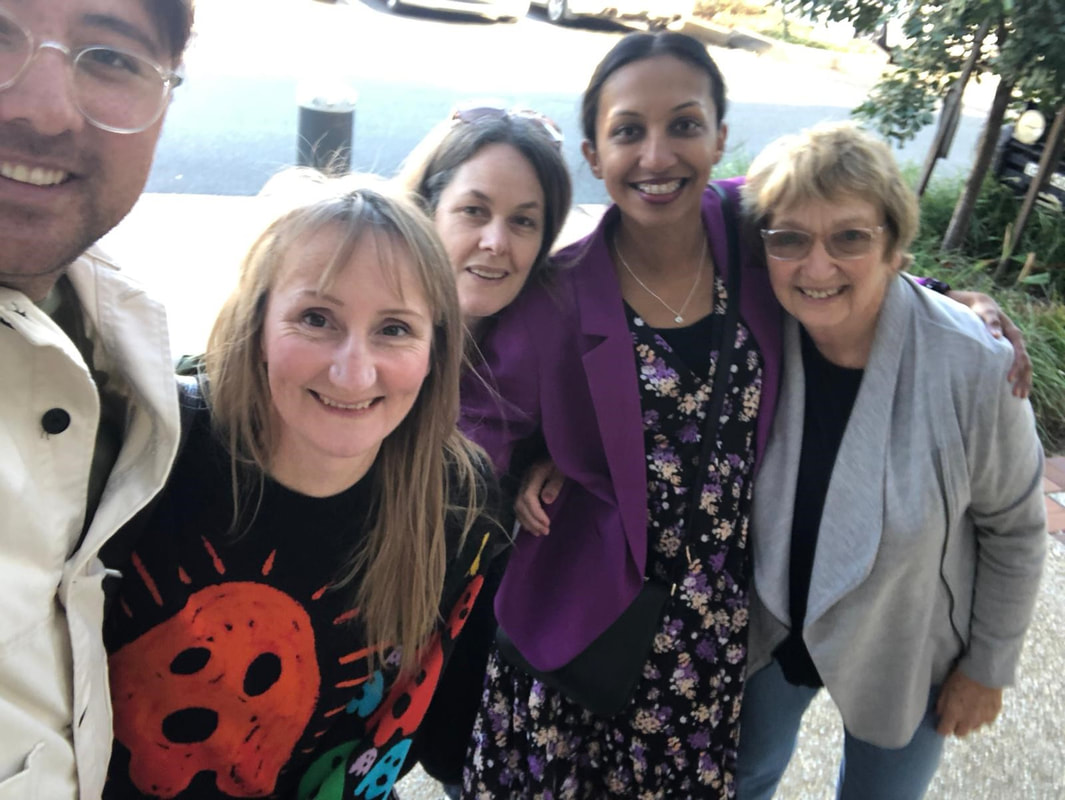
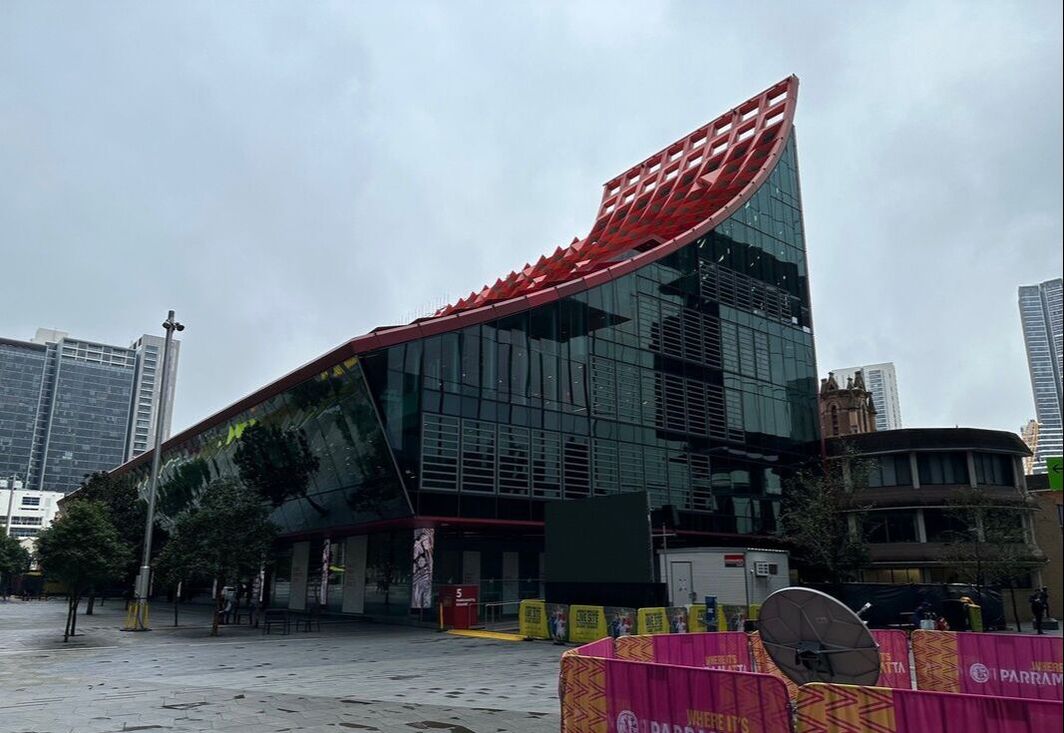
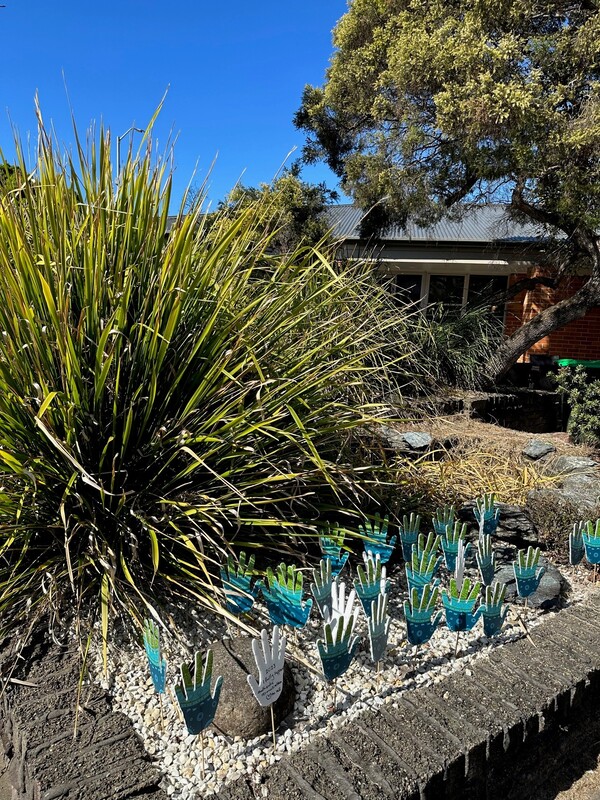
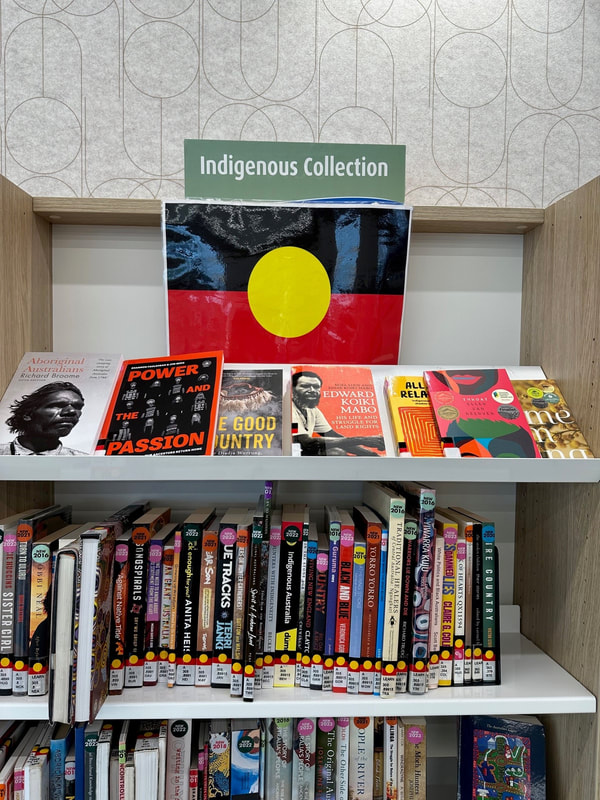
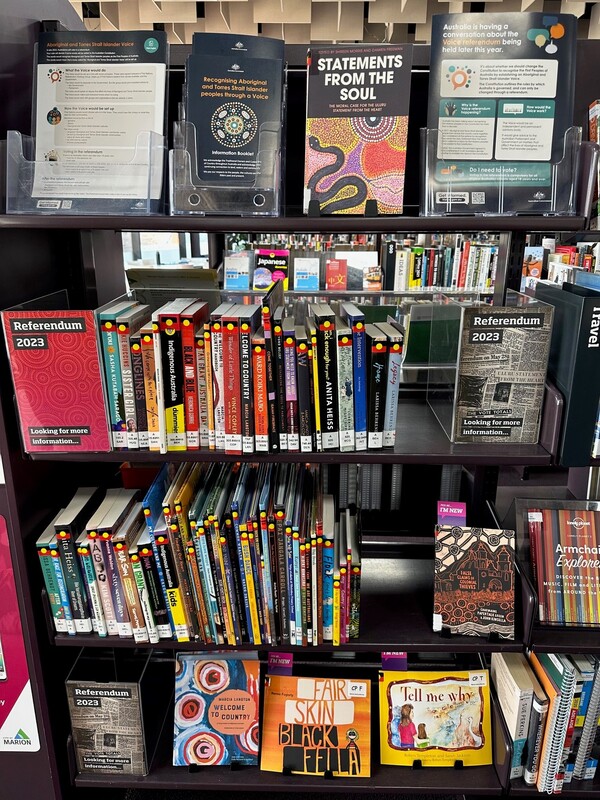
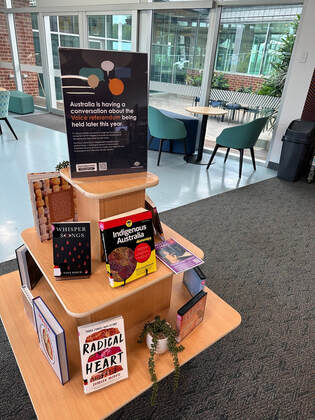
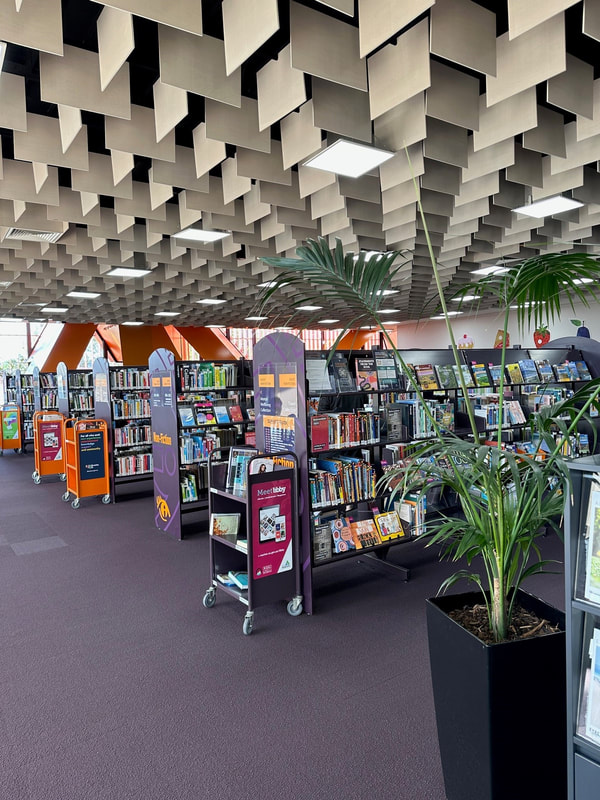
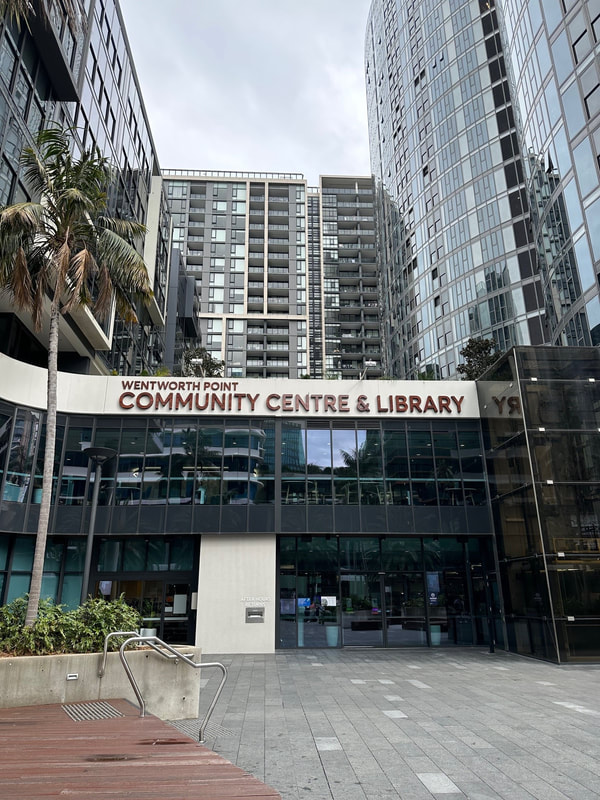
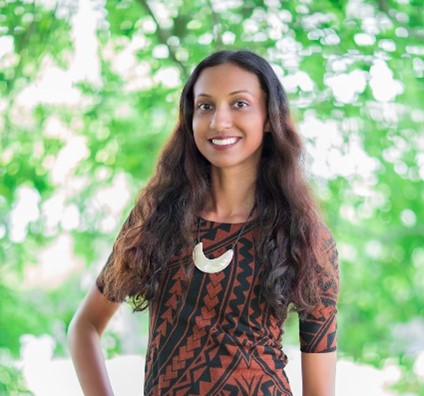
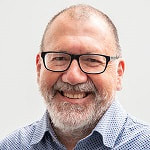

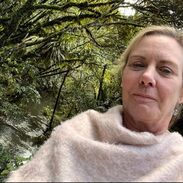

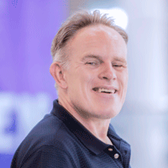
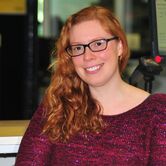
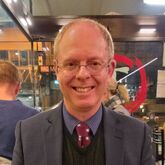
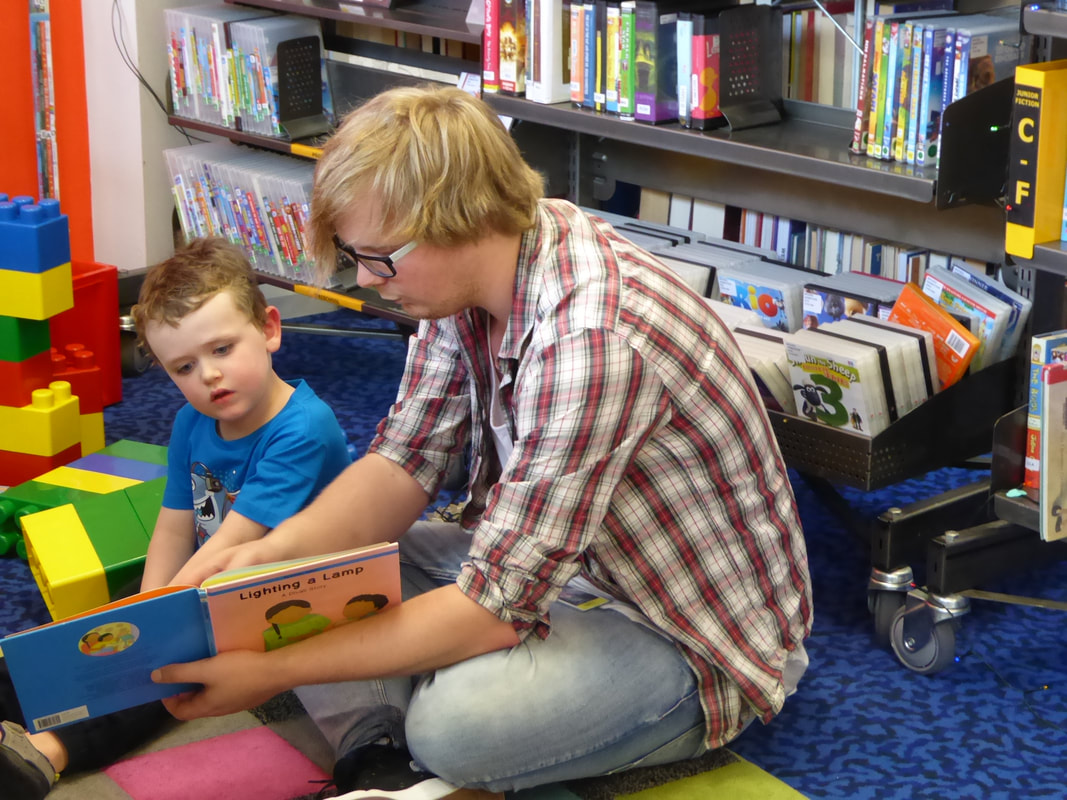
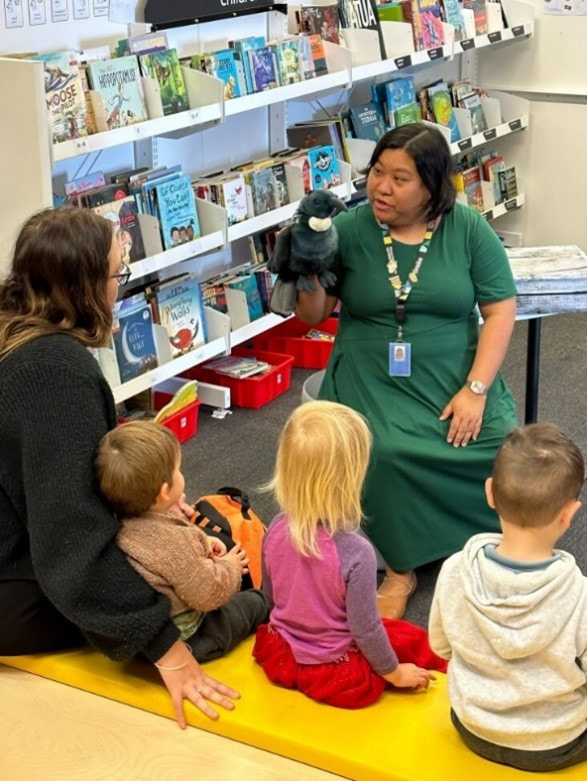
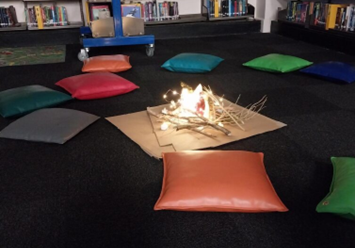
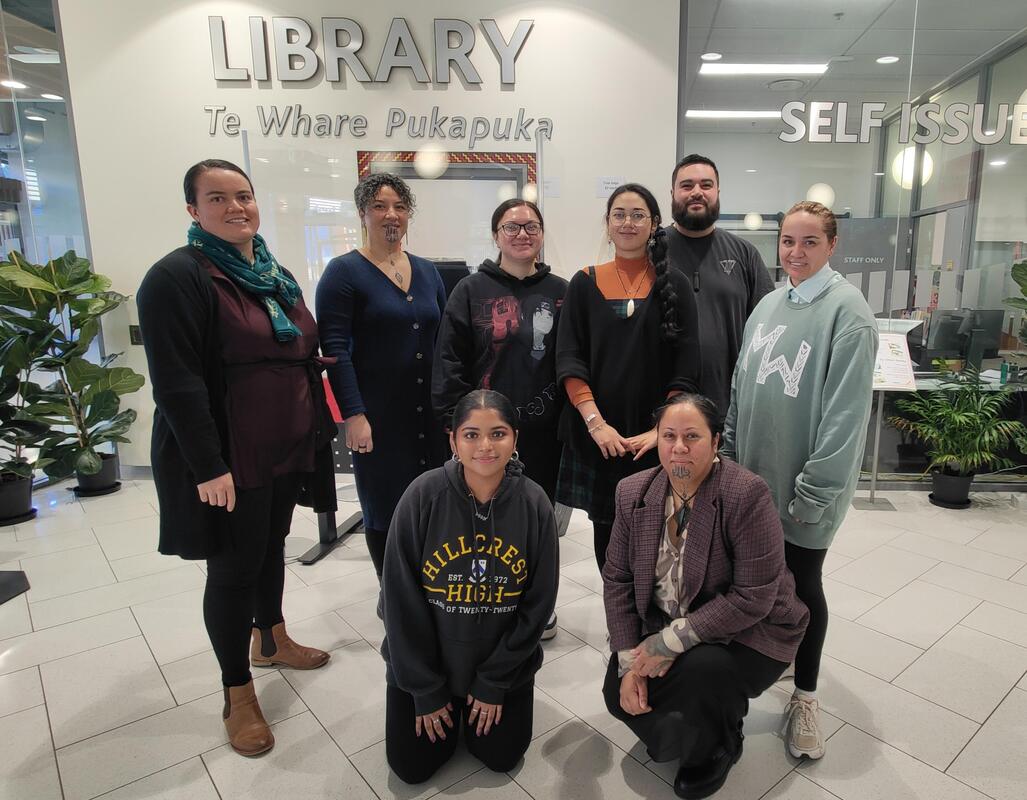

 RSS Feed
RSS Feed